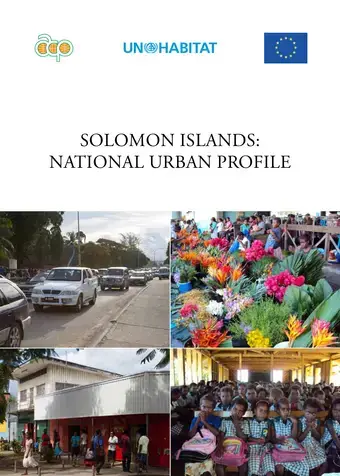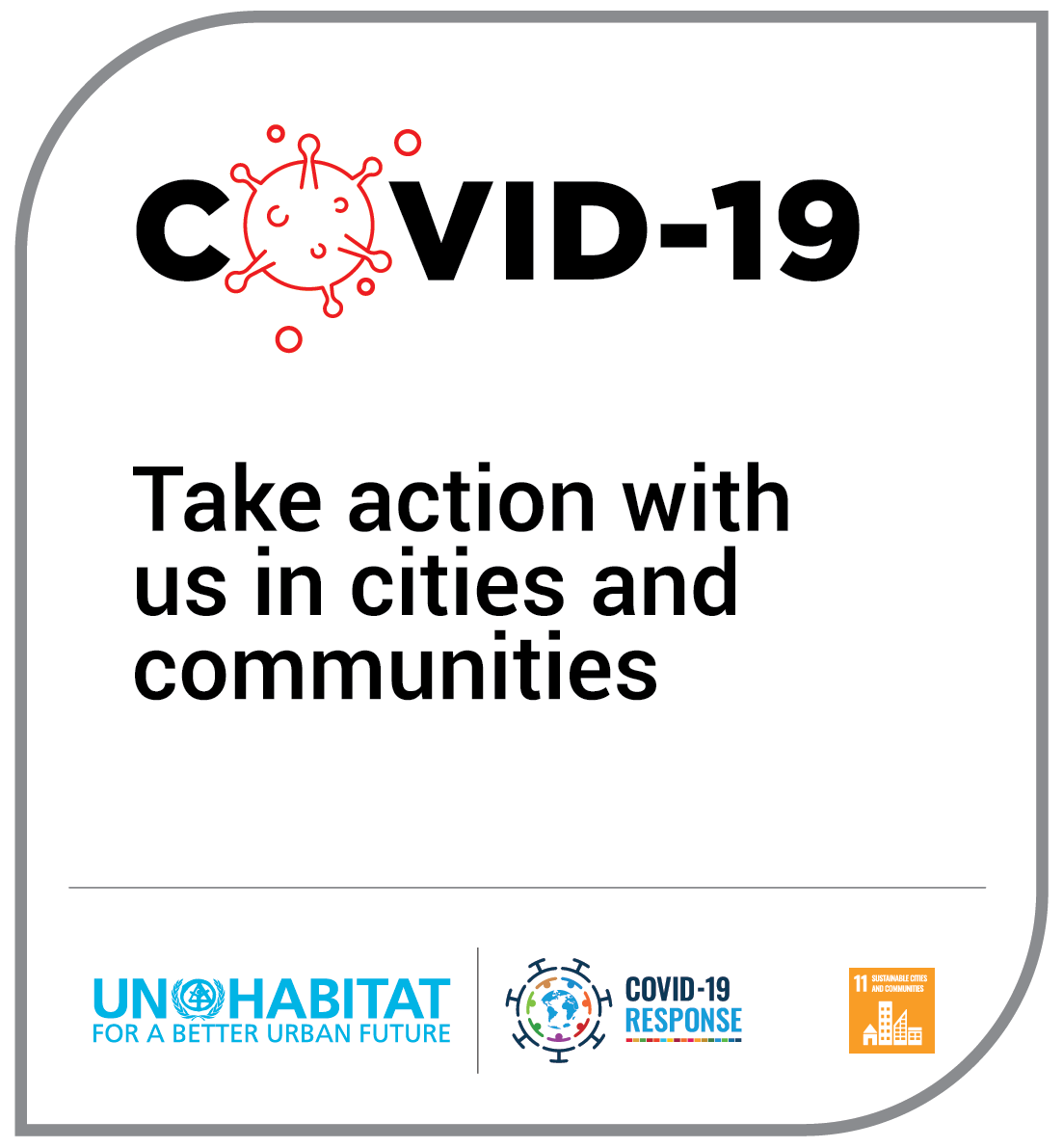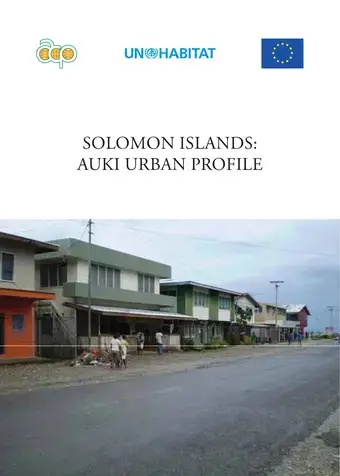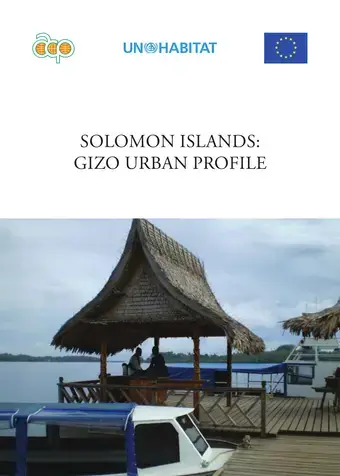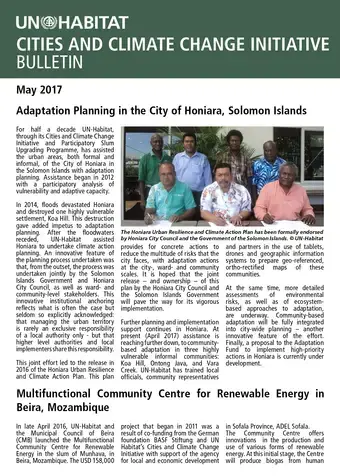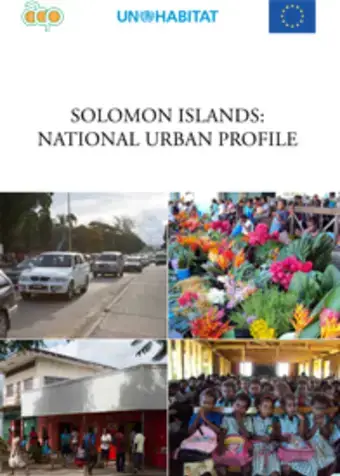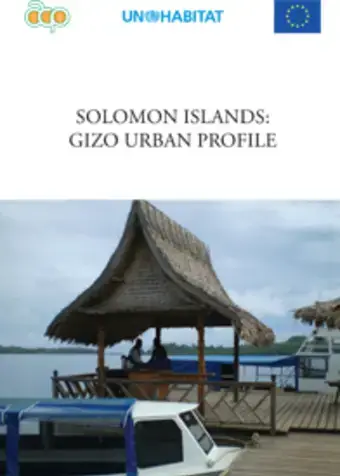Overview
The archipelago with its six major and many hundred outer islands is one of the poorest countries in the region with a low level of human development. The islands are affected by floods, king tides and natural disasters (e.g. tsunamis) which are causing wide-reaching costs for the communities. UN Habitat supports the island’s urban management and planning practices, in particular with the implementation of a city-wide settlements upgrading strategy for Honiara, the islands’ largest urban area.
The Solomon Islands are facing increasing poverty and the economic performance of the country is lagging behind other Pacific countries. Together with the lack of environmental sustainability and the vulnerability to climate change and disaster risks, these are key challenges within the islands. Although 80% of the population live in rural areas, the Solomon Islands is considered to be one of the world’s fastest urbanizing countries, with an annual urban growth rate of 4.7 percent. This is leading to increased urban poverty and informal settlements with a lack of sanitation and infrastructure. Furthermore, employment rates are low and significant gender inequalities exist in all spheres. UN-Habitat focuses its work on informal settlements and seeks to reduce these obstacles.
80.3 of the population lives in rural areas and maintain subsidence livelihoods in villages of only a few hundred people.
20 % of young people are unemployed in the capital of Honiara.
19% of infants are not receiving adequate nutrition and 1/3 of children are stunted.
Annual urban growth rate of 4.7 per cent
Country Beneficiaries
“For the Ministry of Lands, Housing and Survey, climate change is a key concern. We thus very much appreciate UN-Habitat’s Support for resilience building through the Participatory Slum Upgrading Programme and the Climate Change Initiative. The Ministry has integrated climate resilience in the Honiara Planning Scheme, in the revision of the Town and Country Planning Act and Climate Change is a key pillar of the forthcoming Informal Settlements Upgrading Strategy. Our budget provisions now take Climate Change action into consideration”
Stanley Waleanis, Permanent Secretary, Ministry of Lands, Housing & Survey
Donors
Contact
Highlighted Publications
Legacy content
- Total value of UN-Habitat investments (2008-2015): $ 120,000
- Total number of UN-Habitat projects (2008-2015): 3
- Main donors: World Bank, UNDP, European Commission and the Africa, Caribbean and Pacific Secretariat
- Implementing partners: Ministry of Lands, Housing and Survey, Honiara City Council
The Pacific has a very rapid rate of urbanization and high population growth and is not well enough prepared to cope with the challenges and opportunities that urban growth presents.
General information
UN-Habitat is well placed to assist the Solomon Islands to improve its urban management and planning practices and enable new thinking and actions about how best to evolve cities, towns and peri-urban areas for the future.
The agency provides training, expert advice, proven tools and methodologies for small-medium sized urban centres within alignment of national needs and demands as articulated in National Development Strategies. In the Pacific, this is framed in assisting countries meet their commitments to the Pacific Urban Agenda (Initiative 13.5, Pacific Plan).
The Solomon Islands has an urban population of over 113,000, of which over 70% reside in the capital city of Honiara. The country is confronting challenges related to growth - urban poverty and employment, housing, environmental risk, land administration and infrastructure provision and maintenance.
The government of the Solomon Islands is acutely aware of the need to enhance urbanization processes and outcomes. The Solomon Islands Urban Management Programme of Support (SUMPS) has been formulated by the Ministry of Lands, Housing and Survey provides a framework to integrate and coordinate an increasing number of pro-urban management interventions at national, provincial and Honiara city-level, supported by an increasing number of international development partners such as the World Bank, New Zealand, Australian Aid, UNDP and UN-Habitat.
Not only would better guided urbanization contribute to the sustainable development of the nation, it is also seen as critical in terms of addressing communal conflicts and peace building. An official announcement to embark on a National Urbanization Policy (February 2015) provides such an opportunity.
In 2015 the Ministry of Lands, Housing and Survey and the Honiara City Council issued a completely revised Urban Planning Scheme which takes into consideration resilience, settlements upgrading and well planned and managed public spaces. The development of a city-wide settlements upgrading strategy for Honiara, supported by UN-Habitat, designed to complement the Planning Scheme and feed into the city-wide settlements upgrading strategy, is also underway.
A comprehensive policy and legislative review was also conducted as part of the Participatory Slum Upgrading Programme. The provision of potable water to informal settlements has been a key challenge in Honiara. International support has focused on rural and peri-urban areas. UN-Habitat, led by the Water and Sanitation Programme of the World Bank, the Pacific Regional Infrastructure Facility, UNICEF and the ADB have supported a comprehensive situation analysis and policy advocacy programme with Honiara City Council and Solomon Water. In parallel, UN-Habitat has also embarked on testing the International Guidelines on Basic Urban Services in the Solomon Islands.
Honiara City launched its Climate Change Vulnerability Assessment in May 2015 and is finalizing a comprehensive Climate Resilience Strategy for 2016. Based on the Climate Change Vulnerability Assessment, Honiara City Council had developed operational guidelines for Disaster Management which were put to the test during and after the devastating floods of April 2014. Lessons learnt from the disaster have contributed to the comprehensive climate resilience strategy for Honiara.
In the wake of the April 2014 floods UN-Habitat supported the Humanitarian actors with its knowledge acquired in the development of the Honiara Vulnerability Assessment and the Ministry of Lands, Housing and Survey, as the national Shelter Cluster co-lead. In particular the discussion on resettlement and resilient housing was supported.
Contacts
Bernhard Barth - Bernhard.Barth@unhabitat.org
Human Settlements Officer UN-Habitat Regional Office for Asia and the Pacific ACROS Fukuoka Building, 8th Floor, 1-1-1 Tenjin, Chuo-ku, Fukuoka 810, Japan
